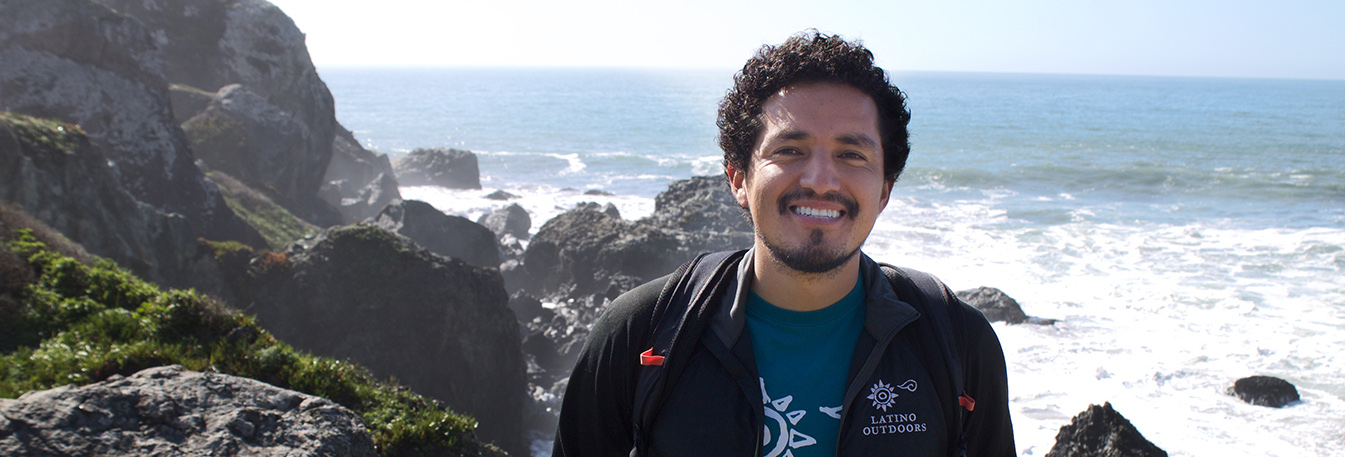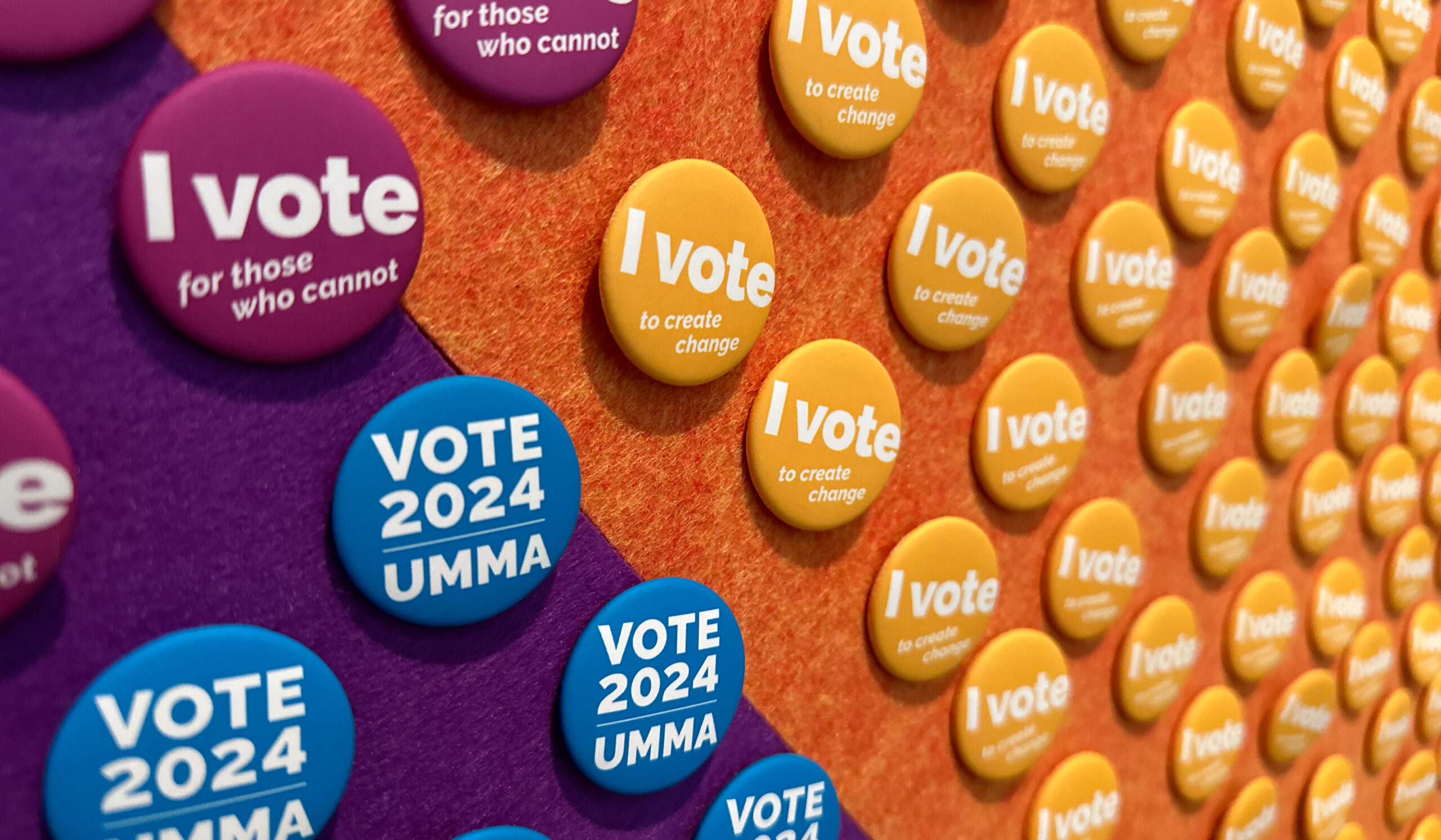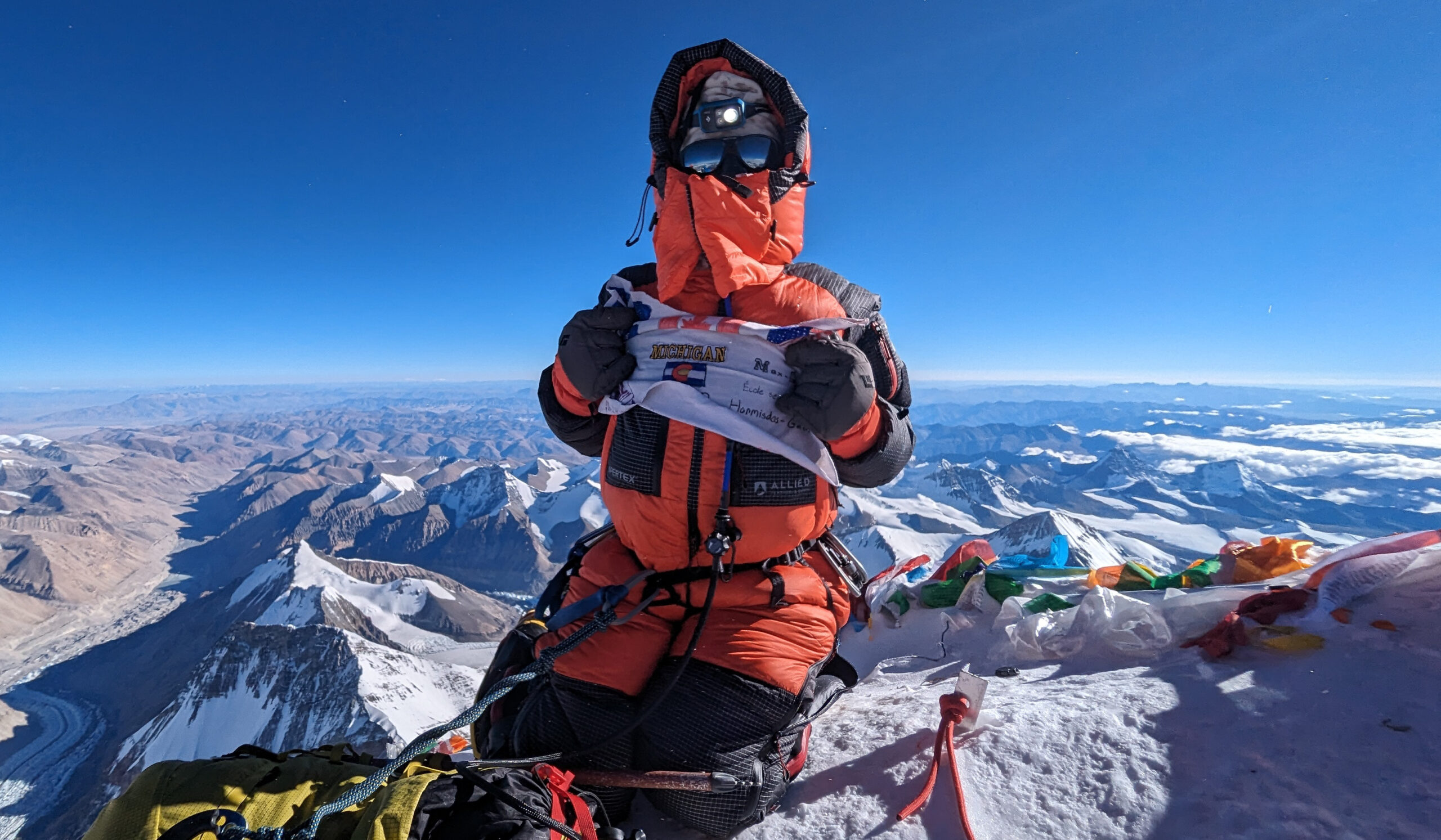José González, MS’09, has always been ardent about the outdoors. His grandparents raised him surrounded by nature in Amatlan de Cañas, a rural village in southern Mexico, where they tended corn and peanut fields. He fondly remembers his boyhood days spent playing beside riverbanks, digging up nuts, and catching grasshoppers. Though he left Mexico at age 9 to join his migrant-worker parents in urban Turlock, Calif., nature continued to be González’s passion.
Four years ago, he decided to take his love of the outdoors one step further by launching Latino Outdoors. The national organization strives to get Latinos—who have long been underrepresented in outdoor activities—into nature and engaged in national conservation issues.
Since then, Latino Outdoors has introduced thousands of people to nature, become a voice for the Latino community, and helped conserve vast swathes of land. President Barack Obama even thanked González at a White House ceremony in 2016 for his work.
“We’re welcoming Latinos and giving them an invitation,” says González, who lives and works in the San Francisco Bay area. “Sometimes, just going out in a group means a lot. People think, ‘There’s a place in this group where I can see myself reflected.’”
Outdoor recreation is a disproportionately “white” activity. Words like “camping” and “outdoor performance clothes” are included in the satirical book, “Stuff White People Like.” Even though Latinos comprise 17 percent of the U.S. population, they account for just 7 percent of national park visitors, according to a National Parks Service study.
Outdoor recreation, however, is important for everyone. It reduces stress, lessens anxiety and depression, and slashes obesity rates, issues that inordinately affect certain Latino populations, along with other minorities.
Moreover, though Latinos are underrepresented in outdoor activities, polls show they care deeply about national parks and conservation issues. A poll taken last year showed that 84 percent of Latinos consider issues involving public land, water, and wildlife just as important as education, the economy, and health care.
In that light, Latinos Outdoors is working to awaken a sleeping giant.
“There is a Latino identity and history and voice in relationship to nature and the outdoors and conservation that is of value,” González says. “When we introduce a family to a park for the first time, we say, ‘This might be your first time, but it’s not your community’s first time.’ We’re not new to the table.”
Latino Outdoors’ inception harkens back to González’s own experience in 2012. Wanting to get involved with environmental issues and his community, he cast about the internet and was disappointed to find no outdoor organizations geared toward Latinos. When someone suggested he start such an organization, he did so.
González registered the domain name in January 2013 and began organizing hikes the following year. Today, Latino Outdoors boasts a team of 30 and has a presence in seven states across the country, as well as in Washington, D.C. He is now working to gain nonprofit status for the organization within the next year.
Another, more complicated, barrier is that Latinos report not feeling particularly comfortable in national parks. For one thing, a park ranger’s uniform closely resembles that of U.S. customs agents, triggering anxiety for immigrants who have had difficult border experiences. González also recalls simply not feeling welcome on one occasion when, in his mid-20s, he stopped off at a small store near a national park. “I just got this look like, ‘What are you doing here?’”
Latinos Outdoors’ mission is to be a visible, national voice for the community, thus making it easier for Latinos to enjoy the outdoors. To that end, González and his dozens of volunteers organize family-friendly hiking expeditions in national parks and lead high school students on their first camping, kayaking, snowshoeing, backpacking, and climbing trips—all free of charge. Last year they put on 50 outings and are now arranging at least that many this year. In April, they organized 10 events, as well as two Earth Day experiences (a positive-body hiking trip in Yosemite National Park and a cleanup stewardship activity in Texas).
“We take families out on the trail and then we build it up with other experiences,” González explains. “They feel valued and welcomed in this space and then think, ‘This is for me.’”
González’s organization has also made conservation a priority. Latino Outdoors collaborated with other organizations in 2015 and successfully advocated for California’s Berryessa Snow Mountain to be declared a national monument.
Because of that work, González met Obama at the White House dedication ceremony for the new national monument. “When it was my turn to shake his hand, I became completely awestruck,” González remembers.
Instead of falling apart, he entered what he likes to call his “appreciation and gratitude mode.” He thanked the president and introduced himself before receiving the warm response from Obama, “Mucho Gusto.”





